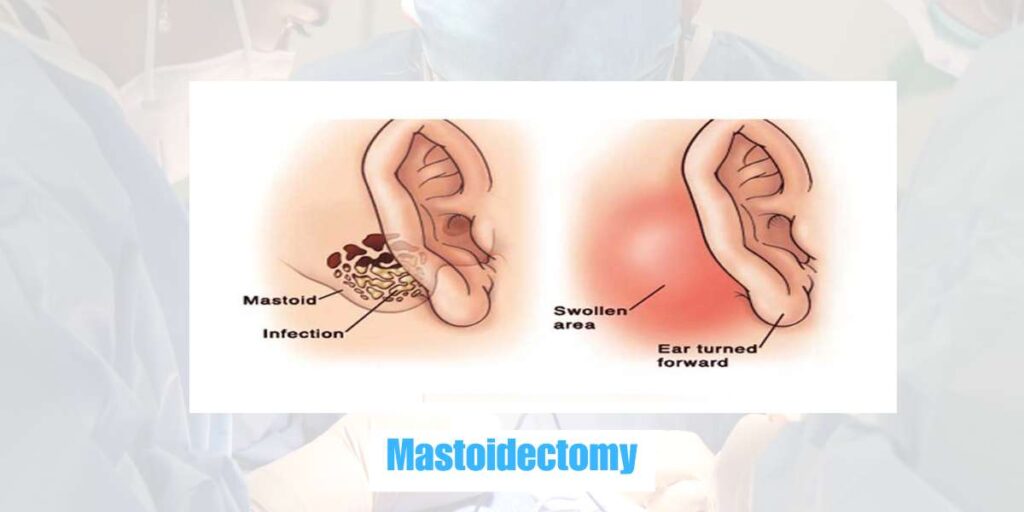A mastoidectomy is a surgical procedure performed to remove infected or diseased air cells within the mastoid bone, which is located behind the ear. This surgery is often necessary when infections, such as chronic otitis media, spread from the middle ear to the mastoid bone and are unresponsive to antibiotic treatment. The procedure helps to prevent the spread of infection and to preserve hearing function.
Why is Mastoidectomy Performed?
Mastoidectomy is typically recommended for the following reasons:
- Chronic Ear Infections: Recurrent or chronic ear infections that do not respond to medical treatment can lead to the deterioration of the mastoid bone, necessitating its removal.
- Cholesteatoma: This is an abnormal skin growth in the middle ear that can cause infection and damage to the mastoid bone, requiring surgical removal.
- Complications of Otitis Media: When middle ear infections spread to the mastoid bone, they can cause serious complications, including hearing loss, meningitis, or brain abscess, which may require surgical intervention.
Types of Mastoidectomy
There are several types of mastoidectomy, depending on the extent of disease and the specific requirements of the patient:
- Simple Mastoidectomy: Removes infected mastoid air cells and is often performed in conjunction with a tympanoplasty.
- Radical Mastoidectomy: Involves the removal of the mastoid air cells, the eardrum, and the middle ear structures, typically reserved for more severe cases.
- Modified Radical Mastoidectomy: Similar to a radical mastoidectomy but preserves some of the middle ear structures to maintain partial hearing.
Treatment and Recovery
After a mastoidectomy, proper care and follow-up are essential for a successful recovery. Patients may experience temporary dizziness, tinnitus, or ear drainage, which typically resolve over time. The ear will be bandaged after surgery, and patients should follow specific instructions for wound care, avoid water exposure, and attend follow-up appointments to monitor healing.
The surgery aims to eliminate infection, preserve hearing, and prevent complications. Recovery times vary depending on the extent of the surgery and the patient’s overall health, but most patients can expect a return to normal activities within a few weeks.
Why Choose Mastoidectomy Treatment in Bhubaneswar?
For those in need of mastoidectomy treatment in Bhubaneswar, it is crucial to choose an experienced and skilled ENT surgeon. Dr. Bulu Nahak, a leading ENT Surgeon in Bhubaneswar, offers expert mastoidectomy surgery with a focus on patient-centered care and optimal outcomes. With extensive experience in treating complex ear conditions, Dr. Nahak ensures that each patient receives personalized treatment and comprehensive follow-up care.
Mastoidectomy Surgery in Bhubaneswar
Mastoidectomy surgery is a crucial procedure for addressing chronic infections or diseases affecting the mastoid bone, situated behind the ear. This surgery involves removing infected or damaged tissue to prevent complications such as hearing loss or the spread of infection. If you’re seeking expert care, Mastoidectomy Surgery in Bhubaneswar is available, with specialized ENT surgeons like Dr. Bulu Nahak offering advanced surgical techniques. Whether dealing with persistent ear infections, cholesteatoma, or other mastoid bone issues, our experienced team ensures comprehensive treatment for optimal recovery and ear health.
Whether you are dealing with chronic ear infections or a complex ear condition, Dr. Nahak’s expertise in mastoidectomy surgery in Bhubaneswar provides the assurance of quality care and successful recovery.


